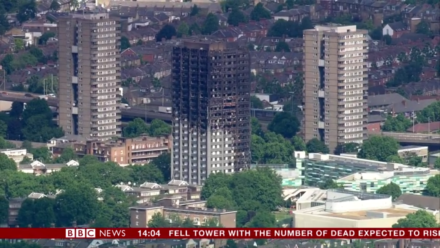
The Hackitt Review released today provided an opportunity for the government to address the fire regulations that contributed to the Grenfell Tower tragedy. The government have made excuses over their lack of action, using the review to drag their heels over fire reforms. As we expected, lessons have not been learnt and its recommendations are woefully inadequate.
The Hackitt Review’s weakness is its overemphasis on the “culture” of industry rather than tangible reforms, and its failure to ban combustible cladding and desktop studies. Hackitt acknowledges that the ambiguity around existing regulations has caused the industry to “race to the bottom”. Yet what the report fails to see is that this demonstrates the need for a radical overhaul of weak fire regulations, rather than merely tinkering around the edges of a broken system.
Labour welcomes the recommendation that the Joint Competent Authority (JCA) oversees better management across the life cycle of fire safety. MPs, experts across the industry and both survivors and the bereaved all believe it is impossible to have systematic reform without banning the use of desktop studies or combustible cladding. A robust framework of compliance is contingent on the regulations which determine compliance. Within the membership of the JCA, trust in Local Authorities will not ensure ‘good practice’. This was tragically demonstrated by the fact that Kensington and Chelsea local authority allowed the use of combustible cladding on Grenfell Tower. By refusing to change these regulations, the review’s recommendations simply do not go far enough to keep the public safe.
Unsurprisingly, an industry-led review into industry culture is never going to produce an overhaul of their own practice. Business cannot be trusted to regulate business. The expert panel appointed after the Grenfell tragedy has members which have signed off the use of combustible cladding, including the Building Research Establishment (BRE), who own the unfit testing method (BS 8414) which allowed combustible cladding to be used on Grenfell Tower. As industry experts ROCKWOOL put it, “the BRE’s commercial interest in defending the status quo should disqualify them from this role”.
One of Hackitt’s advisory groups that focused on “materials, products and system testing”, the areas that have allowed widely-criticised desktop studies, combustible cladding and ‘unfit’ safety regulations, is operated by organisations that have set and made money from the current flawed system. It is notable that groups such as the All Party Parliamentary Group on Fire Safety, the Fire Sector Federation and the Fire Brigades Union who have been campaigning for fire regulatory reform, have been denied places on the inquiry. The inquiry’s membership of compromised interests restricted the capacity of the final report from having any robust recommendations for reform.
The review doubled down on the ability of industry to mark its own homework, arguing that the shift in culture should put onus on the “construction industry to take responsibility for the delivery of safe buildings.” Government, not industry, must drive fire regulation reforms. We welcome the government’s commitment of £400 million to remove combustible cladding, but unless they ban it, the new JCA has no reason to reject requests for its use on high-rise buildings. The report also arbitrarily altered the definition of high-rise from 18 to 30 metres, disregarding the risk to high rise buildings under 30 metres.
Groups such as the Local Government Association, the Housing, Communities and Local Government Select Committee and the Royal Institute of British Architects have repeatedly called for an immediate ban on combustible cladding. The Labour Party’s scrutiny over the past 11 months has pushed Housing Secretary James Brokenshire into announcing a consultation on outlawing combustible cladding. Yet another consultation only further delays an urgent decision.
The failures of this review, and of this Tory government’s entire response to Grenfell, can be explained by their ideological commitment to deregulation and privatisation. Over the last 11 months, from the Grenfell Inquiry itself to the Hackitt Review, the government has shown a disgraceful disregard for the concerns of survivors and experts. Labour’s campaigning has been the antidote to their inaction and reluctance. We must continue to push for the banning of combustible cladding and desktop studies.
Karen Lee is MP for Lincoln and Shadow Minister for Fire.




More from LabourList
Government abandons plans to delay 30 local elections in England
‘The cost of living crisis is still Britain’s defining political challenge’
‘Nurses are finally getting the recognition they deserve’